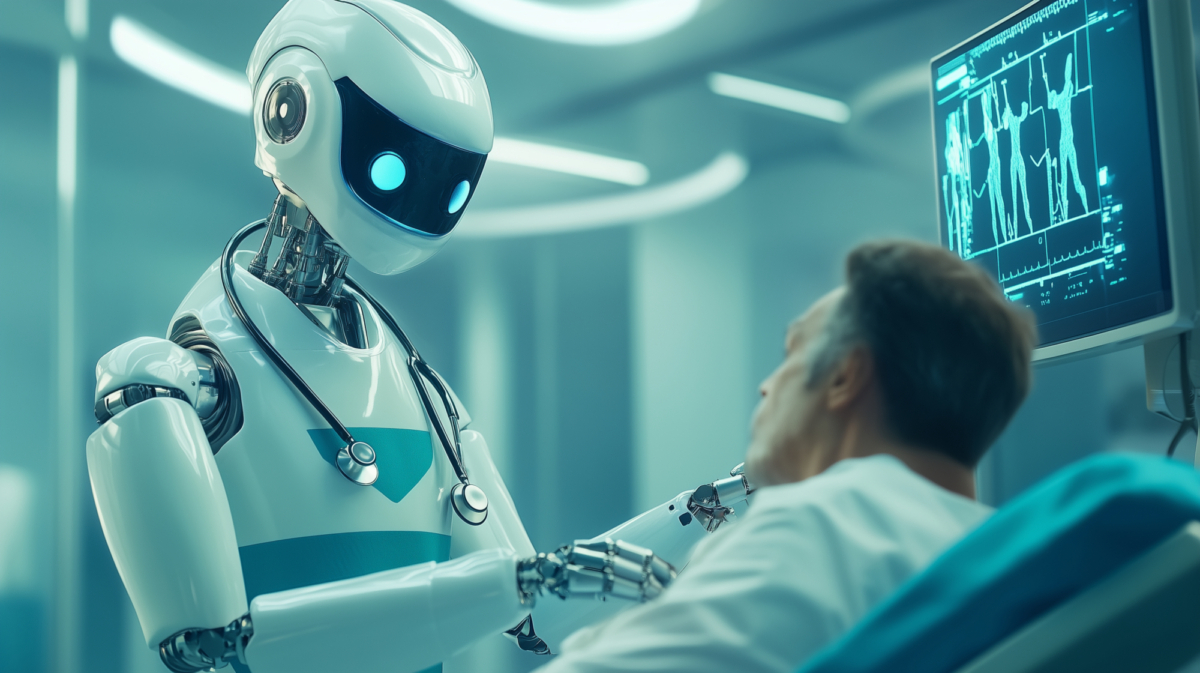LLMs & Doctors: Revolutionizing Healthcare Through Collaboration
The healthcare industry is on the cusp of a significant transformation, driven by the rapid advancements in Large Language Models (LLMs). These powerful AI tools are no longer just a futuristic concept; they're actively being integrated into medical practices, promising to improve patient care, streamline workflows, and ultimately, save lives. But how exactly are LLMs and doctors working together, and what are the ethical and practical considerations?
LLMs: A Powerful Ally for Medical Professionals
LLMs are proving to be invaluable assets in various aspects of healthcare:
Enhanced Diagnostics and Treatment Planning
- Faster diagnosis: LLMs can analyze medical images (X-rays, CT scans, etc.) and patient data far quicker than a human, potentially identifying subtle anomalies that might be missed. This speed can be crucial in time-sensitive situations.
- Personalized treatment plans: By processing vast amounts of patient data and research, LLMs can assist in developing tailored treatment plans that consider individual genetic factors, medical history, and lifestyle choices, leading to better outcomes.
- Drug discovery and development: LLMs are accelerating the drug discovery process by identifying potential drug candidates and predicting their efficacy, significantly reducing the time and cost associated with traditional methods.
Streamlining Administrative Tasks
- Automated report generation: LLMs can automatically generate patient reports, freeing up doctors' time for direct patient interaction and complex medical tasks.
- Appointment scheduling and reminders: Automating these tasks reduces administrative burden and ensures patients receive timely reminders, improving adherence to treatment plans.
- Medical record management: LLMs can help organize and manage vast amounts of patient data, ensuring easy access to relevant information when needed.
Improved Patient Communication and Education
- 24/7 patient support: Chatbots powered by LLMs can provide immediate answers to patient queries, offering basic medical advice and reassurance, especially helpful outside of regular clinic hours.
- Personalized health education: LLMs can generate customized educational materials tailored to a patient's specific condition and understanding level, fostering better patient engagement and compliance.
- Multilingual support: LLMs can break down language barriers, ensuring patients from diverse backgrounds receive clear and accessible information.
Addressing Ethical and Practical Challenges
While the potential benefits of LLMs in healthcare are immense, it's crucial to address the associated challenges:
- Data privacy and security: Protecting sensitive patient data is paramount. Robust security measures are essential to prevent breaches and misuse of information. Regulations like HIPAA in the US must be strictly adhered to.
- Algorithmic bias: LLMs are trained on data, and if that data reflects existing societal biases, the LLM's output might be biased as well. Careful data curation and ongoing monitoring are crucial to mitigate this risk.
- Liability and accountability: Determining responsibility in case of errors or misdiagnoses involving LLMs requires clear legal frameworks and guidelines.
- Maintaining the human touch: The role of the doctor remains irreplaceable. LLMs should be viewed as tools to augment, not replace, human expertise and empathy.
The Future of Healthcare: A Collaborative Approach
The integration of LLMs into healthcare is not about replacing doctors; it's about empowering them with powerful tools to improve patient care. By carefully addressing the ethical and practical challenges, we can harness the transformative power of LLMs to create a more efficient, effective, and equitable healthcare system. The future of healthcare lies in a collaborative partnership between humans and AI, where technology complements human expertise to achieve optimal patient outcomes.
Call to Action: Learn more about the latest advancements in AI and healthcare by exploring reputable resources like the and the . The future of medicine is here, and it's collaborative.
